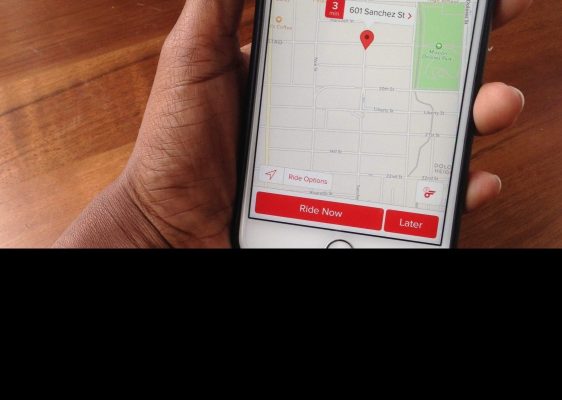Flywheel, the no-surge-fee taxi startup that hopes to challenge on-demand ride services like Uber and Lyft, is expanding its TaxiOS platform. Flywheel’s TaxiOS, which launched back in October as part of a pilot program in San Francisco, is a smart meter that features electronic dispatch, payments, navigation and GPS-based metering.
“The pilot program in San Francisco was a huge success for us,” Flywheel CEO Rakesh Mathur told TechCrunch. “We knew our solution was accurate and easier to use than other options but having actual drivers provide feedback on what they see in everyday use was invaluable. Because our system is software based we were able to take feedback and quickly implement it, and will continue to customize our system based on the needs of the industry.”
For example, some drivers said that they would arrive to what they thought was the passenger’s final destination, turn off the meter, but then get asked to take the passenger somewhere else. Now there’s a feature that allows for that.
The TaxiOS was previously limited to 70 cars in San Francisco because of rules and regulations around GPS-based metering in taxi cabs. That has since changed, with the recent ruling from the California Division of Measurement Standards. Now, Flywheel is legally able to operate its TaxiOS throughout all of California.
“Approval to operate in California is huge for us, but it’s just the beginning,” Mathur said. “The key to TaxiOS has always been its scalability, so we look forward to continuing to gain state approvals — in New York and beyond — and expanding TaxiOS across the country. The NYC TLC has received our application for the pilot and we expect to be launching in NYC in early 2016.”
Flywheel hopes to have all of its 200+ Flywheel-branded taxi cabs in San Francisco equipped with TaxiOS by February. For the 80% of cabs in San Francisco that also use Flywheel’s software, the decision to convert to TaxiOS will be based on their timetable. To be clear, the Flywheel-branded taxi cabs are owned by FlywheelTaxi, which used to be called DeSoto Cab. Still, Flywheel and FlywheelTaxi are two completely separate entities that simply share the Flywheel name for the purposes of co-marketing. Flywheel is in talks with other cab companies to have more branded cabs in the future. Flywheel currently operates in San Francisco, Los Angeles, Seattle, San Diego and Portland.
Meanwhile, competitors like Arro by Creative Mobile Technologies and Way2Ride by Verifone, which also market themselves as surge-free alternatives to Uber and Lyft, recently unveiled their own digital hailing and payment apps. Arro is live in New York, with plans to launch in San Francisco, Boston, Chicago, and Washington, D.C., and Way2Ride operates in New York and Philadelphia. Even though 80% of cabs in San Francisco use Flywheel’s software, according to the company, it could be harder for Flywheel to achieve that kind of adoption in New York, where CMT and Verifone each control the screens of about half of the 13,000 taxi cab systems in the city. Though, the TLC in New York did recently decide to get rid of those televisions in the backseat of taxi cabs, which would allow them to introduce a new GPS-based meter system.
“Our strategy for competing in New York, and in other markets will be our TaxiOS platform,” Mathur said. “It’s not only expensive but time consuming for companies to install other vendor equipment, when it takes only 15 minutes to install and configure a phone with Flywheel. Additionally, this is a mobile platform which will give drivers access to more flexible cashiering, dispatch options and revenue opportunities such as last-mile delivery. So basically it’s all the functionality of those ugly boxes in the front of taxis, in a single cost efficient phone, plus new opportunities afford by having a smartphone in every car.”
